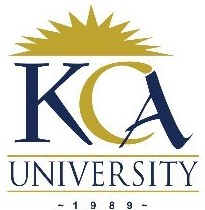 UNIVERSITY EXAMINATIONS: 2014/2015
UNIVERSITY EXAMINATIONS: 2014/2015
ORDINARY EXAMINATION FOR THE BACHELOR OF SCIENCE
IN INFORMATION TECHNOLOGY
BIT 2109 PROFESSIONAL ISSUES IN IT
DATE: APRIL, 2015 TIME: 2 HOURS
INSTRUCTIONS: Answer Question ONE and any other TWO
QUESTION ONE (Compulsory)
a) The IT industry is increasingly aware of its own environmental impact. Describe at
least three environmental problems to which the industry contributes and how, as an
IT professional, you can help to solve this problem. (6 marks)
b) Using relevant examples describe at least four ethical principles (4 marks)
c) Offer the best argument either for the institution of proprietary software, or for the
institution of free software (6 marks)
d) Describe the essential elements relating to conduct that identify a professional activity
(4 marks)
e) Using relevant examples describe at least four ethical principles (4 marks)
f) Intellectual property refers to creations of the mind: inventions, literary and artistic
works, and symbols, names, images, and designs used in commerce. Identify the key
forms of intellectual property (4 marks)
g) Differentiate between ethics and morality (4 marks)
QUESTION TWO
a) Is it an ethical obligation of hosts of social networking sites to prevent posting of
malicious and false stories about people on members’ sites? (6 marks)
b) Explain what globalization is and how it has been supported by developments in
information technology. (6 marks)
c) Suppose you are a middle-school or high-school teacher presenting information
technology in a social-studies course. You are to explain the impact of IT in society
is. Draw from both your own prior knowledge and what you have learnt in this
course, to put together a narrative of the concepts you would present in that learning
unit . (8 marks)
QUESTION THREE
a) Discuss the morality of creating machines capable of making human labour obsolete.
(8 marks)
b) Explain what globalization is and how it has been supported by developments in
information technology. (6 marks)
c) Discuss whether the Internet brings people together, or they are isolated as they all sit
in front of their computers? (6 marks)
QUESTION FOUR
a) China and North Korea place severe restrictions on Internet access within their
countries, much of it ideologically based; should the Kenyan government place any
restrictions on Internet information available to its citizens especially in the advent of
the use of social media to spread hate speech. (8 marks)
b) Discuss how to prevent the following health issues while using ICT (12 marks)
i) Eye strain
ii) Repetitive Strain Injury
iii) Back problems
iv) Stress
QUESTION FIVE
a) Recently in the US and Europe, technologies for human enhancement have attracted
public and scientific debate. While enhancement of human abilities has always been a
goal for technology development, new technologies now directly intervene in human
sensory and cognitive apparatus. Scientific input from neuroscience, nanotechnology
(e.g. the development of devices and materials) as well computer science are fuelling
the development of these emerging technologies. A major application of these
technologies is neural implants and other brain-machine interface devices. Some of
them are dedicated to medical purposes, e.g., to reconstruct visual and auditory
sensory abilities (retina and cochlea implants). Other implants have direct
consequences for language production and self control (deep brain stimulation for
patients suffering from Parkinson’s disease). Enhancement technologies can also be
non-invasive like pharmaceuticals aiming at improving cognitive abilities but also
regulating emotions. In some countries, the use of these substances has already
produced concern about societal consequences. Part of this debate is also the
increasing potential of neuroscience in analysing brain activity patterns by which
thoughts and brain states can be identified. In the future, this can, for example,
enhance possibilities to detect liars. These research results have triggered debate
about the increasing control potential of these technologies, but also about the nature
of the intervention in the “human condition” that is supposed to be altered.
Based on the case study above answer the following questions
i) Discuss the main arguments and legitimisation efforts of for or against
human enhancement (10 marks)
ii) Discuss the societal consequences of use of enhancement technologies
(5 marks)
b) Discuss ways in which IT influences cultural life (5 marks)
